 Could coaching change your life and help you thrive in challenging times? During the COVID pandemic, Natasha found herself having to make a rapid change of direction in her business. Luckily, she found Barefoot Coach Annie Lee who helped her find the inner strength and positivity to take on a challenge in the face of adversity. Here, Natasha shares three ways coaching can help us thrive... During the COVID pandemic, Natasha found herself having to make a rapid change of direction in her business. Luckily, she found Barefoot Coach Annie Lee who helped her find the inner strength and positivity to take on a challenge in the face of adversity, and thrive! "I found Barefoot Coach, Coach Supervisor & Workshop Facilitator Annie Lee amidst the COVID lockdown period having had to pause one partnership business" said Natasha. "I had to rapidly grow my coaching business to take over as my main income stream for the family. I was lacking the inner strength to think differently and develop my business to a full time profitable company. Here's three ways Annie helped me move from surviving, to thriving...
Annie Lee: How I became a coach
"Having spent around ten years working in Higher Education, supporting both staff and student development, I found an increasing amount of my work involved enabling people to connect to their purpose and strengths. This naturally led onto my studying a Post Graduate degree in coaching and setting up my very own coaching business in 2015. I now work with a variety of clients supporting positive change in their lives, and I feel utterly blessed to do what I do!" - Annie Lee  We all know that exercise has many benefits for both your mental and physical health but what about combining both physical and mental challenges? What if you could get a “double whammy”- effectively a 2-for-1 whilst up a mountain?! What can we learn from how we are on the mountain? I first came up with the idea whilst skiing a particularly tricky slope (for me!). I noticed I had reverted to my default way of skiing when well out of my comfort zone… weight too far back, jamming on the brakes before launching into the next turn…. It was exhausting and in fact counterproductive!! I didn’t enjoy the slope and it set off a chain reaction of thought processes resulting in a dent in my confidence. My mind naturally took me to how this physical and psychological reaction to challenge could be linked to how I react in life and particularly in my business. For me, the mountains are the perfect environment to really take time out, give yourself space to think clearly and reflect, in order to gain clarity for the way ahead. Combining both physical and mental challenges can really help to raise self-awareness by highlighting thinking patterns and behaviours that serve us well and those that might be holding us back.  There are many, many lessons to take from the mountain – at it’s most basic, a mountain represents both a high point and a low point. Have you thought about the peak you’re aiming for? Are they the mountains you want to be climbing? Have you taken the time to really know, deep within, if this mountain of life you’re on is the one you’re meant to be climbing at this moment? I decided to combine 2 of my biggest loves - skiing and coaching in the Peak Potential Programme – an annual week-long intensive coaching experience in Courcheval, France. The underlying question that frames the week is: “What can we learn from how we are on the mountain?” 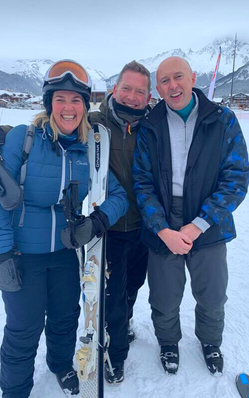 Taking the time out to work on you and your current situation with professional coaches in a supportive and challenging environment means that you have the potential to:
Why do exercise & learning make a great match? Exercise and learning go hand in hand. Physical activity not only facilitates the birth of new brain cells, it also produces smart chemicals that promote learning. Exercise balances neurotransmitters along with the rest of the neurochemicals in the brain. The more you use your brain, the stronger and more flexible it becomes. The more your body exercises, the better your brain functions! “Today is your day! Your mountain is waiting. So. . . get on your way.” ~ Dr. Seuss This time next year our Peak Potential Programme 2022 begins in Le Praz, Courchevel, France! On 19 to 26th March 2022, a small group of 11 will immerse themselves in the experience of BEING on the mountain. They will leave with clear plans for the future, a positive mindset, coping strategies for stressful times as well as feeling motivated and inspired to make 2022 a year of PEAK POTENTIAL for them and potentially those around them! Join Annie Lee Associates in Courchevel for the perfect post lockdown tonic - skiing, Peak Potential Coaching, delicious food, wine & more! Prices currently start at £1495 with one week to go for early bird discount! Book a FREE 30-min discovery call to find out more! 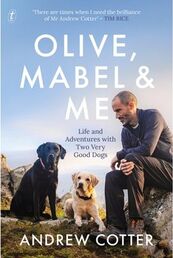 Last week on 4th March was World Book Day 2021 celebrating everything to do with literature and reading. I wanted to share some of the books that I’m currently dipping into and why I’m drawn to them. I rarely have just one book on the go and 4 books is a bit extreme even for me! However I’m currently juggling reading all of them for various reasons... Olive Mabel & me by Andrew Cotter Olive and Mabel went viral on social media with their sporting contests during the COVID-19 lockdown, with Andrew Cotter’s unique commentary propelling the videos to over 50 million views and certainly contributed to keeping my chin up during lockdowns. The new book from broadcaster Andrew Cotter and his famous canine companions, Olive and Mabel is laugh out loud brilliant! Second Wave Positive Psychology by Ivtzan, Lomas, Hefferon, & Worth, 2015; Wong, 2011 The positive psychology (PP) movement, launched by Martin Seligman (1998), is celebrated as the most significant phenomenon in contemporary psychology. PP continues to flourish and evolve in light of new theoretical formulations and research findings and the ‘second wave’ of PP (PP 2.0) represents a maturing of PP that is more nuanced, balanced, and inclusive. This is my current area of study – my “brain food”. English Pastoral by James Rebanks This is a fascinating book around our changing landscape and it really takes me back to my roots - growing up on a smallholding in the Peak District alongside the hardiest of farmers. It’s the story of an inheritance and legacy but most of all our changing relationship with the land. It tells of how rural landscapes around the world were brought close to collapse, and the age-old rhythms of work, weather, community and wild things were lost. Then how, guided by the past, one farmer began to salvage a tiny corner of England that was now his, doing his best to restore the life that had vanished and to leave a legacy and hope for the future. From Field & Forest: An artist's year in paint and pen by Anna Koska This is stunning! Anna (my fabulously talented cousin) celebrates the natural world; the changing of the seasons, the blossoming of flowers and the ripening of fruit. Anna's illustrations are reproduced in beautiful detail and they are accompanied by her musings and observations of objects, engaging us in the everyday realities of her artistic practice. Truly inspiring us all to take time to appreciate our surroundings. An eclectic bunch of books - I know! but I think it’s a pretty sound reflection of me & my interests!!! The natural world, our inner world and a good dose of humour!! How does your bookshelf reflect you?! While many start by cherishing one book at a time, there are several advantages of switching to multiple stories at a time. You’d be surprised how easy it is to keep track of separate books. Plus, reading multiple books at once can actually help you finish faster. If you don’t like a book, you have a backup. If you can’t remember a story, re-read it. This way you can also balance reading for work and reading for pleasure or both! Reflecting on the best books I’ve read in 2020 - most of them were about running!!! However here are my stand outs: Born to Run by Christopher McDougall, Finding Ultra by Rich Roll, Set Free by Emma Slade & The Salt Path by Raynor Winn. The book I recommend to everyone in 2021 - Solve for Happy by Mo Gawdat Why do I love this book? So many reasons but the short answer is it is logical, challenging, well researched and Mo has a unique way of looking at happiness. His story is one that hits you square in the stomach (I strongly encourage you to listen to his audio version if you can!) and helps keep all of his insights fresh in your mind. What I also love about the book is that it doesn’t hold the ‘golden ticket’ until the end – it doesn’t promise five sure fire ways to reach optimum happiness!! It is a rich discussion looking at happiness from a multitude of angles which can challenge our way of thinking. In fact, I love this book so much that I’d like to give the gift of either this book or a bouquet of Freddie’s Flowers to anyone who recommends my 1:1 services in 2021 & their referral signs up with me. Just tell your connection to mention that you recommended them, and I’ll be in touch with your gift! I hope you’ve enjoyed hearing a bit about my bookshelf – I’d love to hear what you’re reading, any recommendations and also what you think your bookshelf says about you!
Last year we operated our first Peak Potential experience! Le Praz, Courchevel, France offered the perfect location for a select group of delegates to explore their personal goals with our expert coaching team, whilst honing their skiing and boarding skills on the piste... Located in a luxury chalet in picturesque Courchevel, close to the biggest ski area in Europe, Peak Potential is the ideal exclusive coaching experience. With daily skiing, expert coaching, incredible trails, and exhilarating mountains the setting was just perfect for beginners, intermediate & expert skiers alike. All delegates arrived open minded and willing to take on an adventure. With the help of experts Annie, Polly & Barney, they took a deep dive into their self awareness and they looked at the connection to and application of their strengths which lead to improved clarity and confidence. Some were even able to identify some hidden barriers to then unlock hidden gems inside. Peak Potential Takeaways
It’s interesting looking back – in the months following Peak Potential, 2 people moved on from their jobs to set up on their own, 1 person switched careers to one that was more in line with her values, another found a better job in a different country, another is in a new committed relationship, and someone else scaled their business!!! All of these things are not just down to Peak Potential buuuut it is interesting to see the amount of change that has happened. “The mixture of coaching and skiing is the perfect combination. The two experiences complement each other so much; because as your skiing improves your mind gains clarity. Annie and Polly are amazing coaches; taking us out on the mountain to run a session will be something I never forget. Barney kept us informed, organised and entertained. I highly recommend Peak Potential; I'll be one who returns! Kate Ashmore, business owner. Next Peak Potential Experience So, what's next? Join us in Le Praz, Courchevel, France ·March 19 - 26 2022 for the perfect post lock down tonic- Skiing, Peak Potential coaching, delicious food, wine and more!
Places are strictly limited. If you would like to chat through how Peak Potential could help you achieve the changes you are after please book a FREE 30-min discovery call or email me if you have further questions. I'm running everyday in 2021!!! There... I’ve said it so I’ll have to do it!!! When change is involved I tend to work best when there is maximum accountability so the more people I say this to the more I will be motivated on those days when I know I will want to pull the duvet back over my head!! So what has motivated me to run a mile a day and why do I think there are some useful takeaways here? This is all about behaviour change – a topic that we’re all grappling with during the current pandemic. Ultra-inspiration Last year I set myself the challenge of running an ultra marathon which unfortunately I just couldn’t complete as COVID scuppered my training plans. This year I have decided to be more gentle with myself – definitely a theme for this year and probably it’s been a long time coming – more on that another time!! The challenge of running at least mile a day really feels doable but also a big fat challenge as I know there’ll be days when I really don’t want to go out! My original inspiration for the ultra came from reading the fantastic book The Rise of the Ultra Runners by Adharanand Finn. Finn explores the psychology of running ridiculously long races and the fascinating ride that the mind goes through. What struck me is that very often, despite having gone through pain like us mere mortals can’t begin to imagine and fighting the demons in their heads, the athletes will feel a huge sense of anti-climax when passing the finishing line!! So the way they battle this is by staying in the present all the way through, some don’t take watches & take no notice of mile markers so they are purely living in – and savouring the moment. Something to maybe think about as we face the challenges of a pandemic? As for me running an ultra… it is still very much on my agenda but I’m going to put it in the diary for 2022… a fitting way to celebrate being 50 I feel… run 50km!!  Mile a day minimum Running every day was sparked by listening to my favourite podcast Slo Mo with the utterly brilliant Mo Gawdat. His guest was Joe de Sena the extreme sports and endurance nut! His mission is to get 100 million people off the coach by creating what he calls a ‘spartan lifestyle’. One golden nugget from that podcast stuck with me… if you can’t give me 1 mile a day everyday you don’t deserve a healthy body. Wow…. With the year idea still not fully formed I began to run daily with Red Together in January. This is a community that initially started to inspire, support and share ways to get active for mental health. January seemed like the perfect month for such an initiative, providing an opportunity to kick-start the year in a positive way. REDs aim is to ‘get active every day, to beat the blues away’ which I really resonated with. A few days in I planned to continue to run throughout the whole of lockdown and quickly after that I went public with my intention to run every day for the whole year!!! The minimum distance I have set for myself is 1 mile so even if I’m feeling rough it should still be achievable. Nearer the end of the year I will be looking to raise sponsorship money in aid of Sport in Mind a charity that lends a helping hand to people experiencing mental health problems in the South East and Dorset. If you’d like to help keep me motivated by donating a couple of quid, please do so here > I am absolutely loving the benefits of building this daily practice, I feel stronger both physically & mentally & love the lack of decisions I now make around running!! No more am I or aren’t I…. I just AM!!! How to change behaviour – the basics Your life today is essentially the sum of your habits. How in shape or out of shape you are? A result of your habits. How happy or unhappy you are? A result of your habits. How successful or unsuccessful you are? A result of your habits. What you repeatedly do (i.e. what you spend time thinking about and doing each day) ultimately forms the person you are, the things you believe, and the personality that you portray. Everything from procrastination and productivity to strength and nutrition – starts with better habits. When you learn to transform your habits, you can transform your life. James Clear writes brilliantly about habit formation, read more here > Three of the most useful techniques for changing behaviour are goal setting, action planning and self-monitoring. Both outcome and process goals are vital for behaviour change. One is unlikely to work without the other. Clear, measurable outcome goals or targets can really help clarify what you want to achieve, and process goals are essential to know the action steps required to achieve this. Goals should be specific, realistic, broken down into small manageable steps and goals should be important. Setting specific action plans increases the likelihood of intentions (i.e. the goals that have been set) turning to behaviour (i.e. the desired actions to reach the goal). In other words, if you plan it, you are more likely to do it! Self-monitoring helps to give a sense of achievement as you “tick” off progress. It gives an incentive to persist with behaviour change (as they want to be able to tick off their progress – seeing your behaviour written down can be a powerful thing). It also provides an account to help you review progress. Read more about habits and how to make behaviour stick here > The key to successful behaviour change is repetition so that’s it… I’m off for a run!! If you would like to chat through how coaching could help you go the extra mile to achieve the changes you are after please book a FREE 30-min discovery call or email me if you have further questions. As a member of the 2020 cohort on the Barefoot run PG Cert in Coaching Supervision, we started in typical fashion by analysing what we all understood by the term supervision. Easy you might say… it’s where a coach takes ‘stuff’ they’re finding challenging & the supervisor helps them think it through… isn’t it? But what sort of ‘stuff’ is appropriate? How exactly does the supervisor help? Is it only challenges the coach can take? What if the coach doesn’t feel they can admit to finding things tricky? How is coaching supervision different to therapeutic supervision? How can people new to coaching be assured that the investment will be worth it? And last of all the biggy – at least for a number of our cohort… how is supervision different to coaching a coach? All of these types of questions rattled around our heads & popped up in conversations. Now here is my confession – I didn’t actually go to supervision in the first 18 months post qualifying because I didn’t think I had anything worthy of taking and I was a bit scared. OK… a lot scared! For many reasons which I won’t go into here, I felt that supervision was for ‘real’ professionals and that I still didn’t have enough 1:1 clients to warrant it. I also felt a little too wobbly to, in my mind, air my dirty washing in a public setting. I felt that I would be exposed as a sub-standard coach somehow or that my coaching was going to be scrutinised. Thinking back, I had very little understanding of what supervision was & how it would be of benefit. So, what would I have needed to hear then that would have given me the insight into the extraordinary benefit I now find from supervision? What exactly is Coaching Supervision? When asked this question initially I leapt to the ICF definition however I’m not convinced that would have helped me back when I was newly qualified. Firstly, I think I would have needed to hear a layman’s terms definition, something like: ‘Coaching Supervision helps you become a better coach and a better reflector!!’ Then I’d probably need a bit more detail… maybe: ‘Coaching Supervision provides a space for reflection alongside helping to develop your reflective capability leaving you better able to develop as a coach. It provides you with a mixture of support, education and a place to sense check ethical and boundary questions.’ Ah now we’re getting somewhere! How about ‘It’s an extension of your learning, an integral part of your continual professional development designed to support your growth as a coach.’ Yup I think that would have convinced me! Fast forward to when I obviously did feel confident enough (I’m not sure what the turning point was) and I started to realise that supervision wasn’t about having your coaching analysed or picked apart, it was far more of a supportive & empowering process. Coaching can be a lonely profession and therefore working with a supervisor or in a supervision group gives you not only a sounding board but also ensures that you are accompanied on your journey. It can feel a bit like a safety net at times and yet there are still periods when the net gets bouncy & mildly uncomfortable… that’s inevitably where the magic of learning is happening! Being accompanied also gives you an opportunity to see things from a different perspective. Peter Hawkins defines supervision as; “The process by which a Coach with the help of a Supervisor, can attend to understanding better both the Client system and themselves as part of the Client / Coach system, and by so doing transform their work and develop their craft” (Hawkins and Smithe 2006). This leads to an often coined term of Coaching Supervision being known as Super-Vision – in other words the process itself is enabling the client to have a wider perspective – a meta picture of what is going on in the coaching relationship. What are YOU bringing to the role of coach, what is the client bringing & what is happening within the relationship? These questions have led to my biggest learning from the PG Cert so far… that of the importance of reflection. Golden nugget Despite my assessing others on their reflective capability as part of my role as a Barefoot tutor my own reflective practice had fallen by the wayside. I had a habit of capturing what had happened – the ‘data’ as our tutor Diane Hana would say - and not going into any sort of depth on paper. I tended to do most of my deeper reflecting in my head but never went through a structured process & certainly didn’t consider what I noticed about me, my client, our relationship and the wider system. The PGCert has highlighted just how much we can gain from deepening our reflective practice – even in the way the course is run – WAY more discussion and WAY less slides than my original course. This has led to a whole new practice for me and, with the help of a fabulous illustrator friend, we created a template for my reflections. This practice not only helps with my unreliable memory but more importantly helps me deepen my understanding of the client and also myself as a coach ensuring that my clients get the best of me in every session. I now diarise time to reflect on my reflections too…. I know, I know there’s an awful lot of reflecting going on but THIS is where the magic happens. It helps me see patterns & helps me figure out what would be of real benefit to take to supervision. So not only am I learning to be a supervisor, I am also learning to be a better coach in the process.
If you would like to chat through how coaching could help you achieve the changes you are after please book a FREE 30-min discovery call or email me if you have further questions. Have your New Year resolutions turned to New Year blah blah blahs?!Reams of conflicting advice about why you MUST make new years resolutions to reach a 6 figure income, get a perfectly toned & svelte body, complete dry January etc. Then others shouting about why resolutions absolutely DON'T WORK. Some people advocate setting intentions not resolutions, some will advise us to make HUGE goals that are just out of reach and others would say to make sure our goals are achievable. We're encouraged to give up booze, become a vegan, lose weight, gain money etc. It's enough to make anyone stick their head in a bucket of ice cream and order a meat feast pizza with lashings of beer. But seriously what does all this say about us? To me, the blindingly obvious point is that we are all different!! There is no one size fits all – especially where behaviour change is involved, and when we boil all of this new year stuff down it comes to just that…. we want to change something that we DO. In this blog post, I hope to give you a bit of background into behaviour change & habit formation as well as giving you some options of how to make that change stick. Whether we make big goals or small ones, use milestones or accountability partners, one of the most important things to behaviour change is REPETITION! Put simply our brains want to make everything we do take up as little energy as possible. This is why certain actions become automatic – like driving a car. The first time we do something, it feels unnatural, takes conscious thought and often we forget how to do it. The more we do it, the easier it becomes until finally we drive all the way home and can't remember how we got there (or is that just me?!). The point is in order to make lasting changes to our behaviour we invariably need to repeat, repeat, repeat! In neuroscience terms we are creating a new neural pathway or changing our thought processes through neuroplasticity. In order for the behaviour to become automatic it needs to become a habit.
Here are 5 methods that work for me and my clients: 1. Vision board Having a visual representation of your goals for the year. This could include pictures & words or phrase that symbolise where you want to be, who you want to be, what you think life will be like once you have achieved your goal, what the journey will be like, how you will feel, who will be with you on the journey and what qualities you need to help you on your way. There are loads of different ways to achieve this – in a recent vision board workshop one of my clients did a vision vase sticking pictures onto different length sticks and placing in a vase. To keep the vision board with you all the time you could take a photograph of it and have it as your screen saver. 2. Accountability Some people need to have accountability in order to help them achieve their goals. It is one of the reasons many people come to coaching – your coach becomes a natural accountability partner. You could choose a friend/colleague/family member to be your accountability partner or you could just splash your intentions/resolutions/goals all over social media – I am using a mixture of all 3 this year for my goals!! 3. Reward system Setting up some kind of reward system really plays on your habit-forming psychology – one of the fundamentals of habit formation is that there is a reward for the behaviour. Charles Duhiggs video explains this in a video about, what he calls, the habit loop: Just make sure the reward is congruent with your resolution/goal! For example, using a chocolate bar to reward yourself when you have lost 2lbs is not really reinforcing the behaviour change you're after whereas having a candlelit bubble bath could be. This leads onto the next method. 4. Milestones By creating stepping stones towards your goal you are basically ensuring that you are a) tracking your progress – so often we don't give ourselves credit for how far we've come & therefore lose momentum b) tapping into our basic drive to achieve & the brain's reward system I talked about above and c) giving yourself an ideal opportunity to stop, reflect & make sure you are still heading in the direction you want to go. 5. Word of the year This one takes some time to think about. If you could sum up the changes, you want to make in your life over the coming year what one word would sum this up? Utilising this word is key to success here – how are you going to remember the word and all that it means to you? You could write about it in a journal every week asking yourself; how have my actions been in keeping with my word of the year this week? What can I do next week to stick closer to my intended behaviours? You could have a visual representation of your word of the year on your phone or journal or fridge door! These are just some examples of how to make your changes stick – the main thing is to TAKE ACTION!!
Hooray it’s Friday!! TFI Friday! Another week down!
How many posts on social media do you see like this come the end of the week? If your feed’s anything like mine I bet it’s a lot! Well I want to challenge this habit and ask WHAT’S THE RUSH?? Why are we celebrating the end of another week like it’s been a chore? Whilst we’re wishing the days away, counting down to the weekend, the holidays, the end of the holidays, we run the risk of missing the very thing we’re actually here for…. LIFE!!!
Last year I did a VLOG on the topic of “I’ll be happy when…” for those that missed it here it is again:
Finn explores the psychology of running ridiculously long races & the fascinating ride the mind goes through. What struck me is that very often, despite having gone through pain like us meer mortals can’t begin to imagine & fighting the demons in their heads, the athletes will feel a huge sense of anti-climax when passing the finishing line!! So the way they battle this is by staying in the present all the way through, some don’t take watches & take no notice of mile markers so they are purely living in the moment. Now THAT is a great analogy for life!! I, for one, don’t want to feel a sense of anti-climax when I get to the end of my race! I want to look back & know that I’ve savoured life as much as I could. I remember feeling exactly the same when I ran (bimbled) the London Marathon. I turned the corner at Buckingham Palace & didn’t want it to end – that 9 month long journey was almost over &, despite it being almost vomit inducingly tough, I felt sad.
This is particularly poignant when, like me, you have what’s known as a “Hurry up” driver!! I really have to battle to keep mine under control! When I have an idea I want to have already completed it by the end of the day – no matter how massive an idea it is, so I have to implement strategies to slow myself down! If you are wanting to slow down & NOTICE – be more PRESENT why not try the following: 5 ways to SLOW DOWN & savour the moment
Part of my work as a positive mindset coach is based on building strategies to savour the moment more. If you would like to find out about how we could work together please do book a call to discuss your options.
I hope you find some nuggets of gold that you can either use yourself and/or pass onto others. The Art of Being Brilliant by Andy Cope & Andy Whittaker
Andy has a PHD in positive psychology & writes very amusing, sometimes hard hitting, easy to read self-help style books. In this particular book he writes about 6 principles that will lead to a happier life:
Take a minute to reflect on the following questions from the book:
Just One Thing by Rick Hanson
The main aim of the book is to enable you to “use your mind to change your brain”. Hanson splits these brain training practices into the following five categories:
The Chimp Paradox by Prof Steve Peters
Prof Peters has come up with a simplified version of the different parts to our brain, which in essence is ridiculously complex! He uses the following analogies to break it down into:
The purpose of the book is to help people manage their Chimp & make the most of it when it is working for you & neutralise it when it isn’t! https://chimpmanagement.com/books-by-professor-steve-peters/the-chimp-paradox/ Lost Connections by Johann Hari
He is controversially outspoken on the widespread use of antidepressants & he refers to research throughout the book. The theory around causes of depression & anxiety are:
The Little Book of Happiness by Miriam Akhtar
This really does what it says on the tin!! It’s a little book which breaks down the underpinning findings of Positive Psychology and puts them into 12 Happiness Habits. These are:
What I love about this book is that it is evidence based, it gives you a nice bit of digestible science AND activities for each habit – all of this in a pocket-sized book with beautiful illustrations – what’s not to love! I hope you have enjoyed this series of book reviews – I am currently working on a FREE positive mind set workbook so keep your eyes peeled and please do share my blog with anyone you feel might benefit.
Why are we so afraid of change?
In the last 6 months I have lost a lot of fitness, put on weight and have been living with pain…. So what on earth stopped me getting it sorted and rehabbing it properly in the first place? Had I gone to the sports therapist at the time of the injury I would be on course for running the Exeter half marathon in a few weeks’ time, feeling fit & healthy but here I am off games for at least another 6 weeks whilst the tendon heals & I strengthen the surrounding structures. I know I’m not the only one! We put off going to see the doctors/physio/dentist even though pain or discomfort is stopping us leading our life to the full. It is exactly the same with the health of our mind – we live with negative beliefs & thought patterns, destructive behaviours, past trauma, toxic work/home situations all the time & often we settle for the life that this gives us, adapting & limiting our goals and dreams along the way. This can play out in big fat life choices too. It can mean we DON’T;
WHY???? The Ostrich Problem
How our brains hold us back Our brain has one main aim; to keep us alive. Two other points are that the brain wants to use as little energy as possible just in case it needs the energy to fight a tiger and it likes certainty. These two points could help explain why we bury our heads in the sand – if we have found ways to adapt to our current situation then these adaptations (thoughts, behaviours, actions) have become automatic; like the path of least resistance for our brain therefore they take up less energy. It doesn’t matter that they may be holding us back – they are familiar & therefore there is a degree of certainty. When we start changing these adaptations, we expend a lot of energy – both mental & physical & we do not necessarily know the outcome. So you see it is all very natural BUT the question is does it serve you? Are you happy to settle? Coaches often describe what we do as disrupting normal thought and behaviour patterns to help people move forward. (The irony isn’t lost on me here – I do this all the time with my clients and yet when it came to my injury I went with the easiest option of doing nothing)! We challenge habitual thinking and raise self awareness. This is all well and good but nothing will change without ACTION! “If you always do what you’ve always done you’ll always get what you’ve always got” Henry Ford How can we help ourselves move forward? If you are facing any sort of change or you know there is something that is holding you back; here are some questions that could help:
Best wishes
Annie x Your Environment For GrowthMy entire career has been centred around growth – growth of embryos into live foals, live foals into yearlings for sale, young stud workers into managers, undergraduates into graduates with a purpose, small business owners growing their business, growth of authenticity, growth of confidence, growth of skills, growth of qualities, behaviours, knowledge and so on and so on. So, what have I learnt from all this growth? Well I believe it’s ALL about the conditions we provide for ourselves and others that will enable growth; and that includes both the external and internal environment. As all good blogs seem to do I have whittled this environment down to a number of key points – they are not the only key points – I do not attest to have THE SECRET or THE FORMULA but they are my take on things at this moment in time so take what works, ignore what doesn’t and add your own thoughts to it! People and Connections1. The people we surround ourselves with. We all need different things from our connections in order to grow – working this out is the first step! Some people need gentle challenge or, put another way, a ‘loving boot’ up their backside! Others respond positively to harder challenge. Some need reassurance, some need recognition, some need guidance, some need freedom. We all need a good dose of positivity! Once you have worked out what you need you can then start to look at who can provide that support. You will more than likely have heard the quote “You are the average of the five people you spend the most time with” most commonly attributed to Jim Rohn the motivational speaker. Whilst this is not an evidence-based quote the fact that we are influenced by our friends does have legitimacy. In a 2017 study by Christakis & Fowler it was found that people are 45% more likely to gain weight over the next 2-4 years if their friend has gained weight. If a friend smokes you are 61% more likely to smoke. There is also a wealth of evidence regarding the impact of our mood on others and vice versa – in effect, as a species, humans are innately programmed to “catch” other people’s emotions. So, it is vital to be aware of this and potentially think about how to combat negative impacts if we cannot avoid the source!!! Working in teams is a great example – what can you do to lessen the impact of the ‘mood hoover’ in the team? What can you do to positively affect that person? A quick and easy audit of your connections could be as simple as asking yourself: Mind2. What we feed our mind. Our thoughts create our reality. Do they really? It all sounds a bit fluffy doesn’t it! However, a deeper understanding of the brain through advances in neuroscience is now backing the fluffy up! Put simply we have a filter in our brains which has several functions, one of which is to scan our environment for the evidence that will back up our beliefs and assumptions. The brain likes certainty! An example would be if you tell yourself you are no good at maths then every time you are unable to do a sum or you get something wrong you focus on that – almost saying to yourself and others “see, I told you so”. If you get a sum right, you probably won’t even acknowledge it at the time so not even giving yourself an opportunity to question your self-talk. So, regarding our growth we can start to be aware of how we talk to ourselves and what impact that has on our lives. We can then start looking at the evidence that backs up our limiting beliefs, potentially rejecting or reframing those beliefs into more positive ones & therefore starting to create a different rhetoric in our heads. This may sound simple, but it does take consistency & repetition to change beliefs and therefore behaviours – it is well worth the effort though! We also need to be mindful what external information we feed our minds. What material do we consume? We are surrounded by negative stories in the media, catastrophes, or at least what the media would like us to think are catastrophes! Social media can be a positive influence, or it can be full of salacious gossip and fake news. Again, it’s about raising our awareness as to how these channels of information affect us and our ability to grow. What information and channels of information supports your growth and which hinders it? Body3. How you look after your body. This is the nuts and bolts and often the forgotten factor when looking at personal & professional growth. I am not a PT or a nutritionist or a sleep expert BUT I do know the importance of physical activity, nutrition and sleep to both our mental and physical health and therefore ability to grow. There are a number of fabulous books/websites out there if you are wanting more information – one of my favourite books of recent years is Why We Sleep by Matthew Walker. or watch his Ted talk Keeping an energy diary is an effective way to find out exactly what suits you and what doesn’t. By tracking sleep, food & fluid intake, activity and putting them against energy levels, mood & productivity over a week you can start to see patterns. Environment4. Your physical environment. What physical environment do you do your best thinking in? Like the above everyone has different needs; some of my clients need peace and quiet. Others work best listening to music. Some need to be outside, some in a small room, some need to bounce ideas off team members, some need solitude. It really is up to the individual but do not underestimate the impact it can have on growth. Put SimplyThink of it like this: you’ve been given a new plant for your garden – what steps would you take to ensure it thrived? Firstly you would find out what conditions it needs to grow – sunny/shady spot, lots of water/not much water, acid/alkaline based soil, close proximity to other plants/plenty of space around it etc and then you would provide the plant with those conditions. Same theory applies for you as an individual. If you are a manager, a parent or a business owner – what conditions provide the best environment for growth for those that you are responsible for? I invite you to take some time to reflect on the following: What are your needs and how can you provide yourself with them to create the best environment for you to not just grow but THRIVE?
Get in contact if you would like to chat through how coaching could help you, your team or your business THRIVE! What do you think of when you hear that someone is a Coach? Life Coaching, Executive Coaching, Career Coaching, Confidence Coaching.....????Well I’m not surprised there is some confusion out there. I have just come back from a networking event where, out of around 20 people, 5 of us were coaches. There was a Midlife Coach, a Leadership Coach, 2 health and wellness Coaches and me. What sort of coach did I introduce myself as? Well I didn’t define it I’m afraid…. I work with people, all sorts of people. Some have executive roles in either public or private sector, some are long term unemployed, some are graduates, some are being made redundant, some are small business owners, some are stay at home parents, some are students, some want to make a career move but don’t know which direction to go in etc etc. I work face to face, via skype, over the phone and I work 1:1, with groups and with teams. So you see it’s quite difficult to define what I do succinctly. So instead of describing what I do I described WHY I do it! I am passionate about supporting, enabling and motivating people to make positive changes and THRIVE in order to confidently achieve their potential. This is known as a “Why statement” and is based on Simon Sinek’s Find Your Why exercise that can be found in his book of the same name. You can also find out more at his website: https://simonsinek.com/find-your-why/ The Power of a Why StatementIf you are a business owner, leader or embarking on a change in your career this can be a really useful exercise to do. The basics are that we all have something that drives us, a purpose, the reason we get out of bed but few of us take time to find out what it is. I’m not sure I totally concur with Mr Sinek when he says that our Why is fixed at an early age – but I will leave that for another time! However, from a business point of view it does a good job!! If you lead with your WHY you are connecting with your audience (e.g. customers/potential employers) via the primitive limbic part of the brain; the emotional part and the part where decision making is controlled. So, if you are trying to pitch your business or pitch yourself in an interview or at a speed dating event start with WHY you do what you do!! People don’t buy what you do they buy WHY you do it. If you are interested in knowing more but don’t want to buy the book watch the Ted talk here: https://www.ted.com/talks/simon_sinek_how_great_leaders_inspire_action My Coaching ApproachSo back to the confusing world of coaching… the type of coaching I do is based on the premise that the mind that holds the problem holds the answer and my role is to enable my client to find the answer not give them the answer. This means that change is authentic and therefore sustainable. Ever been given some fantastic advice only to end up not following it at all? It’s more than likely this is due to the fact that it was the other person's way of dealing with the problem not yours. They are not working with your values, your strengths, your experience therefore how can they know what you should do? The majority of my clients are seeking 2 things – confidence and clarity. The two very often go hand in hand. I feel incredibly lucky to work with people who trust me enough to help them move forward no matter what their goals are. What to look for in a coachIf you are thinking of exploring coaching to help you make changes to your business/life, then I would encourage you to check out their credentials! There are a lot of very poor-quality coaching courses out there hence very poor-quality coaches. The industry is unregulated and therefore the client needs to do some research to be sure of the quality of service they are going to receive. Being accredited with either the International Coaching Federation or European Mentoring & Coaching Council is a good start. Look for qualifications that are validated by respected educational establishments. Free ConsultationsMost reputable coaches will offer a free consultation or chemistry call/meetup. This is to check that you are the right fit, from both sides and that you are ready for coaching. The effectiveness of the coaching is influenced heavily by the coach/client relationship, so it is vital to check this out before committing to any sessions. Also be aware that you are going to be challenged! Change does not usually come easily and there will more than likely be an element of discomfort throughout your progress. Relish it as it’s then you know it’s working!!! If you are interested in a FREE consultation (see what I did there?!) please do get in contact.
|
AUTHOR: ANNIE LEEAnnie is a coach, coach supervisor & coach adventurer! Warmth, depth & joy sum her approach up in a nutshell! CategoriesArchives
March 2024
|



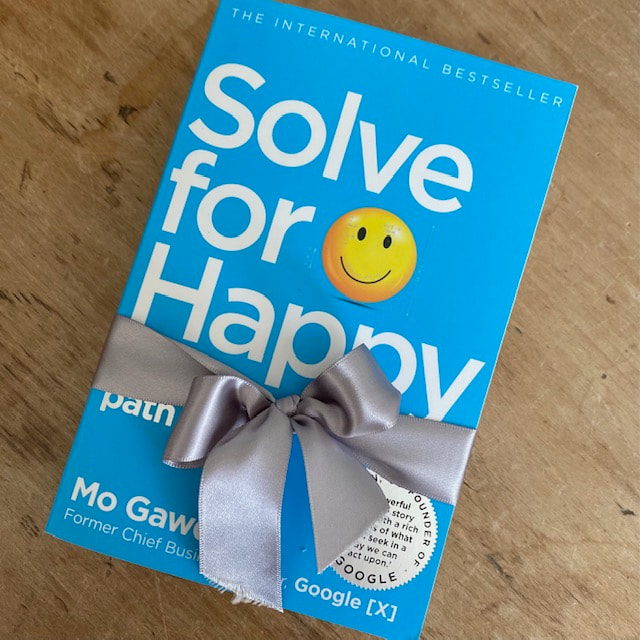
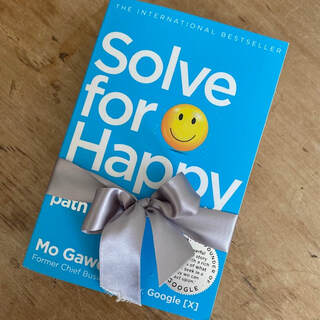


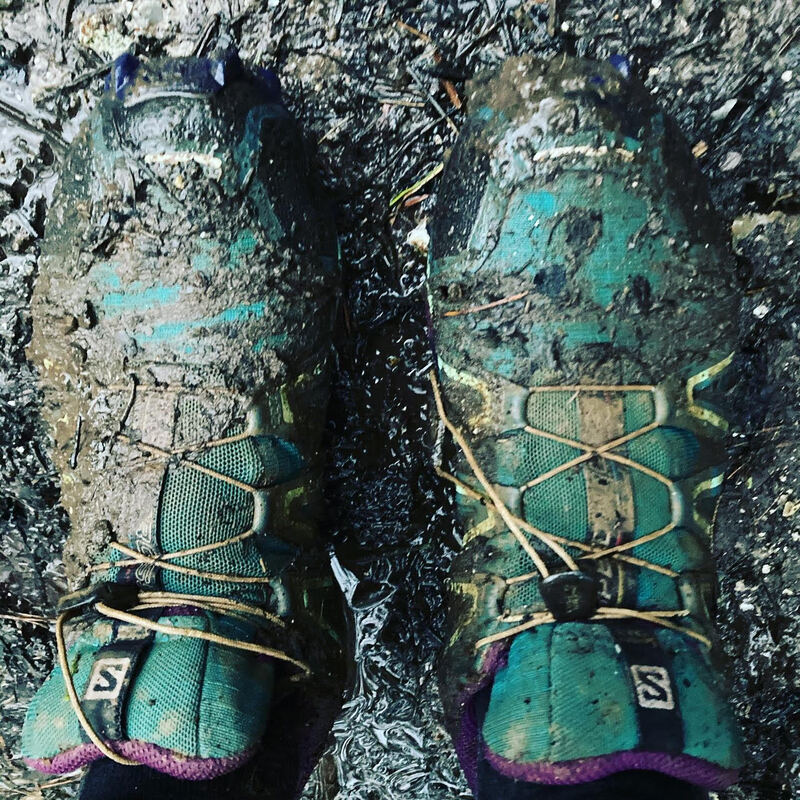
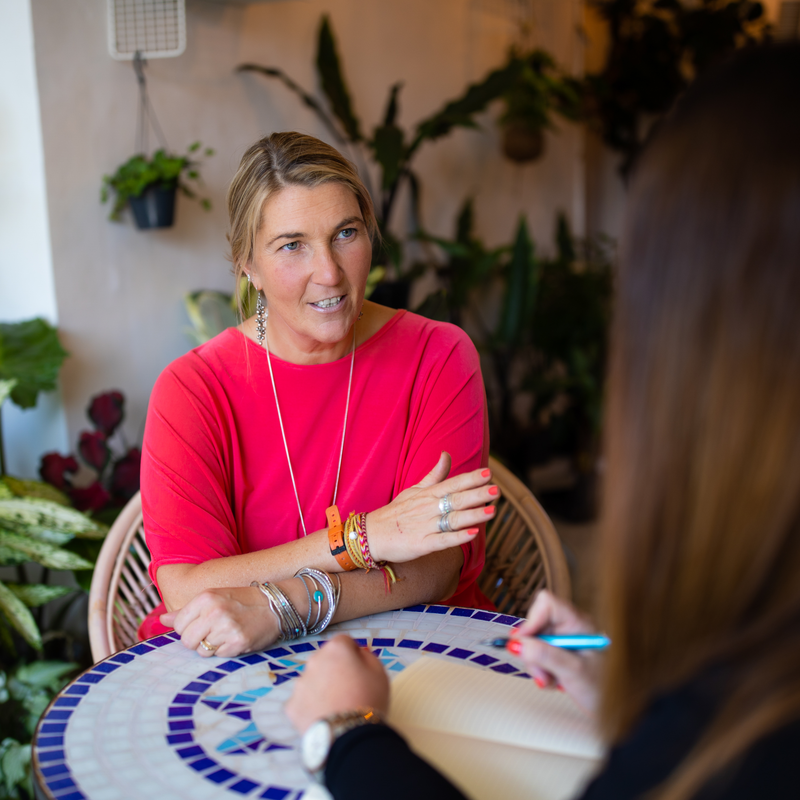
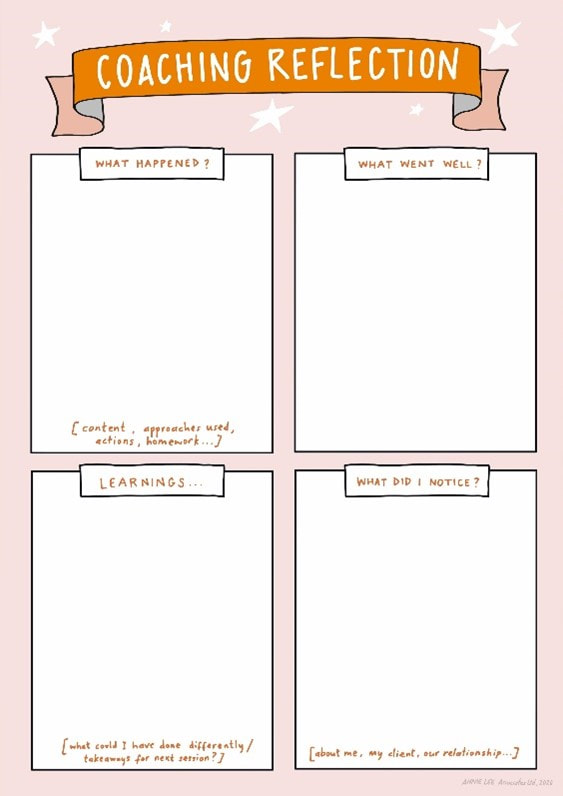
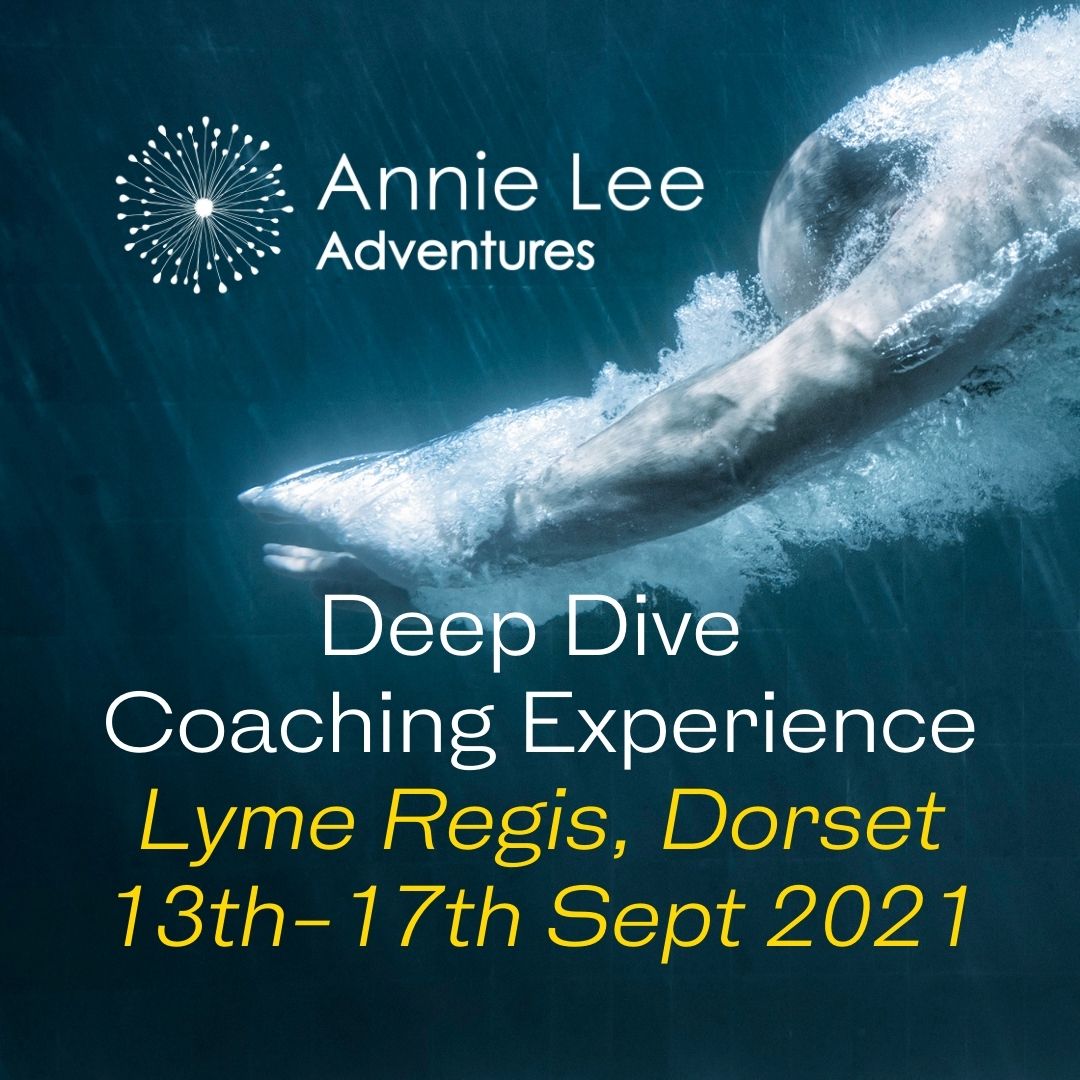

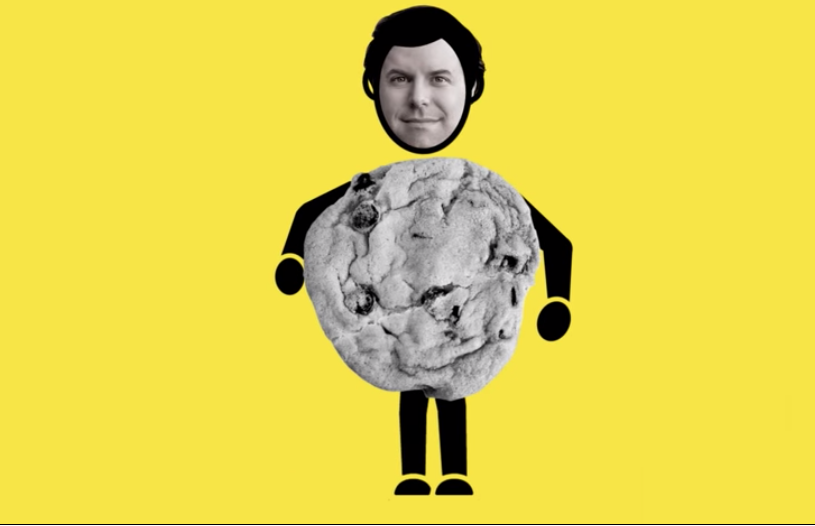
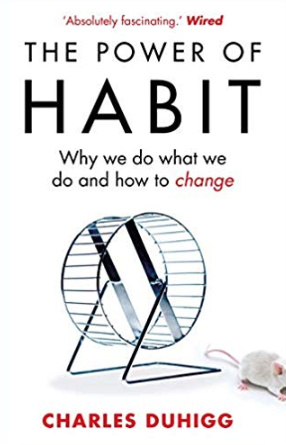
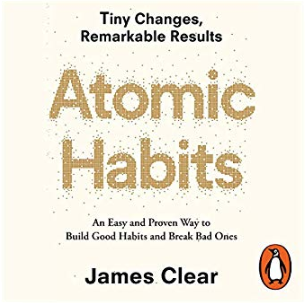


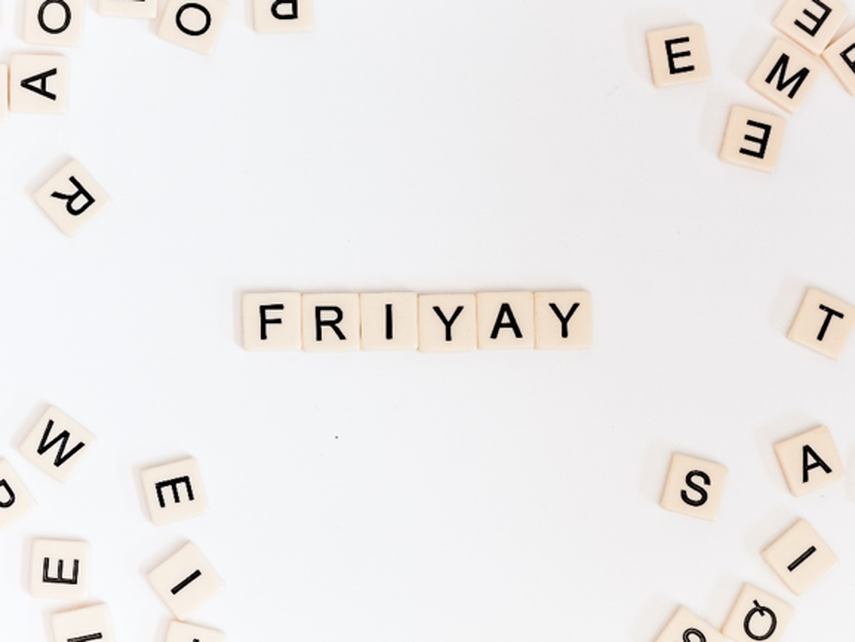
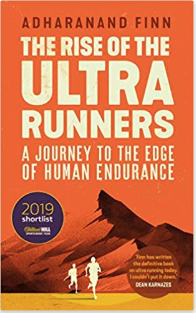


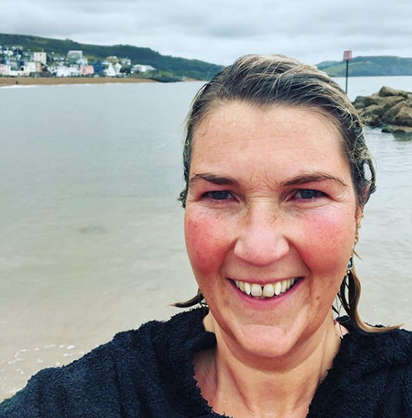
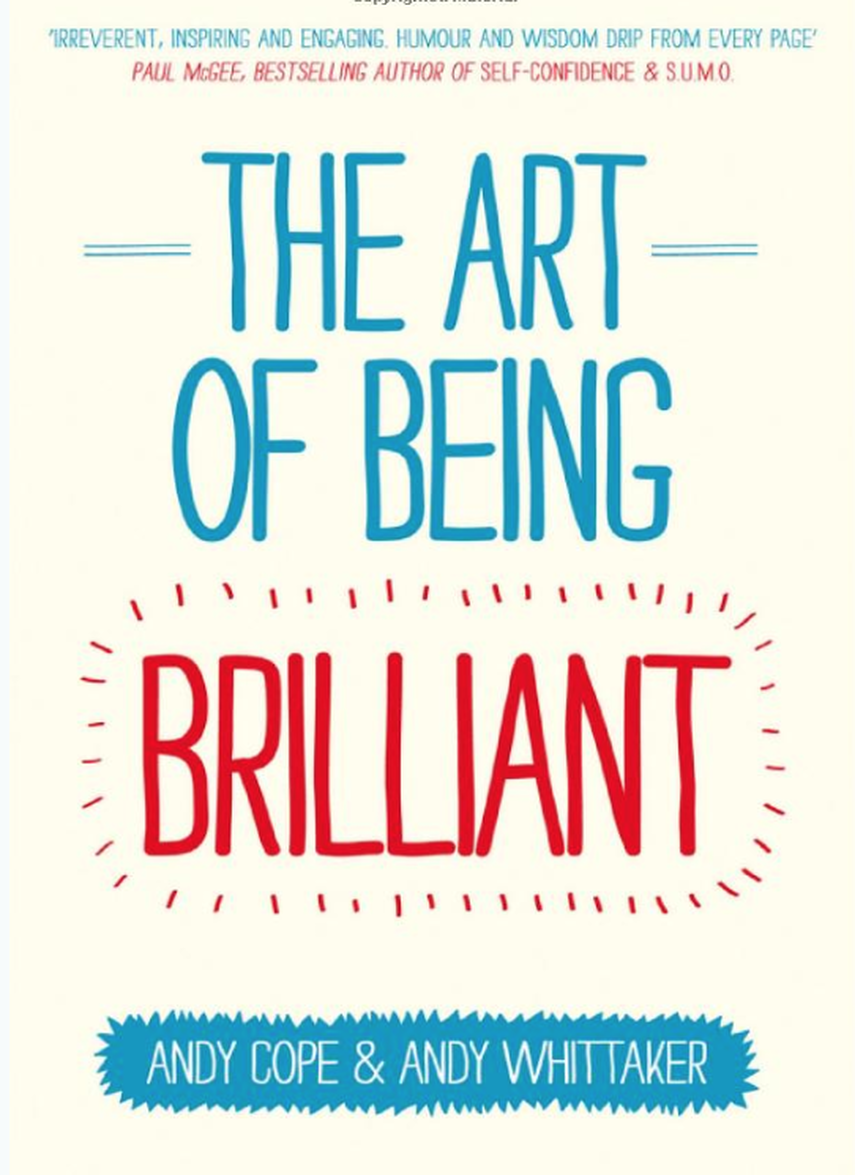
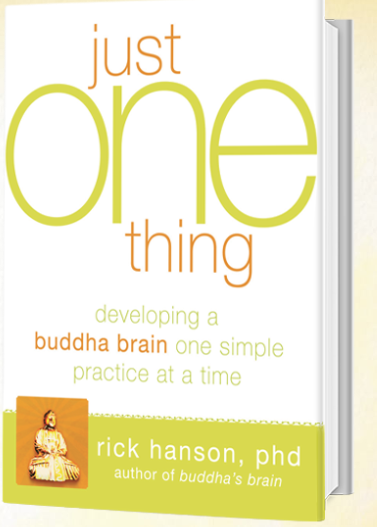
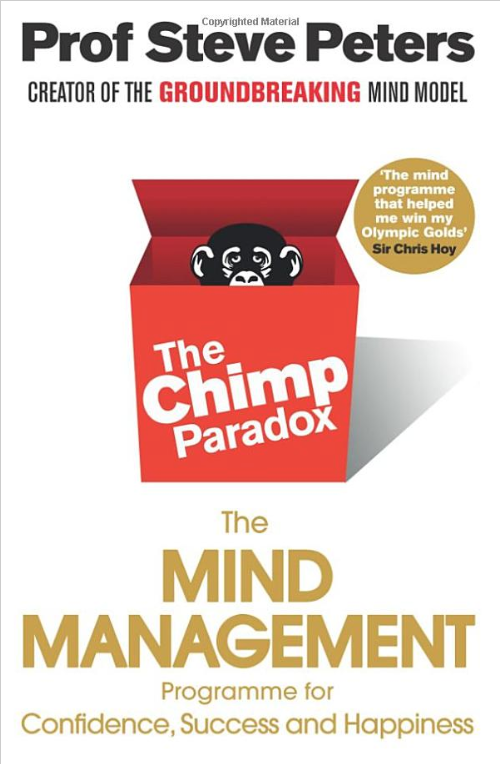
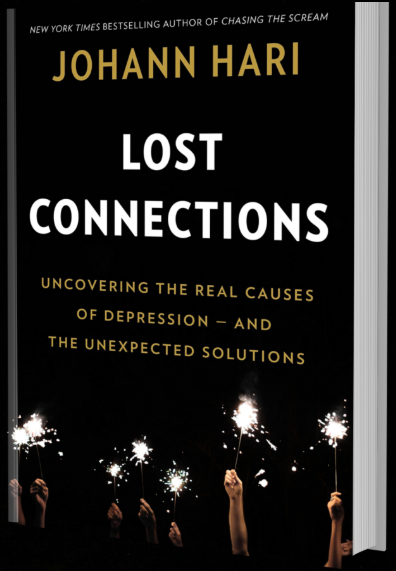
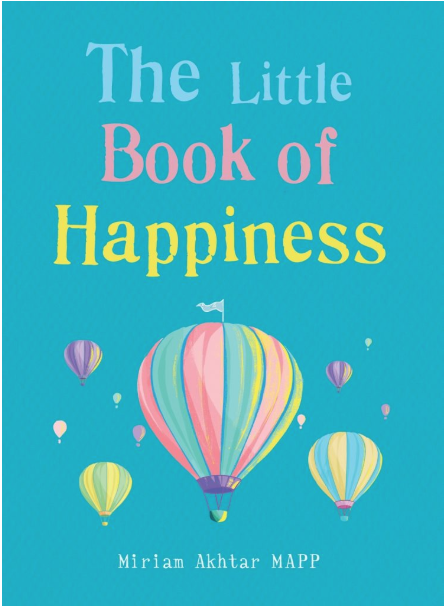

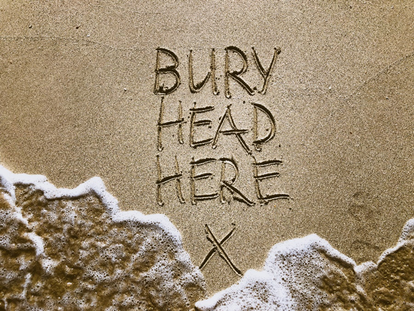
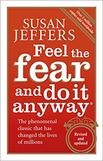
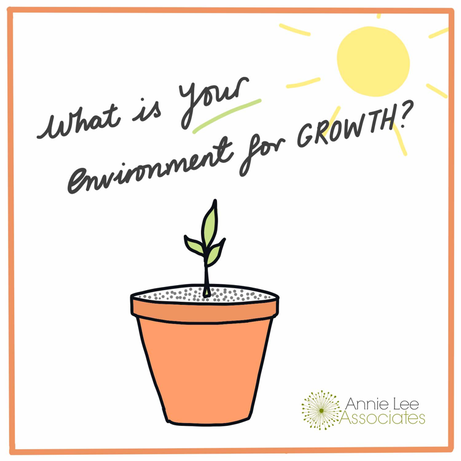
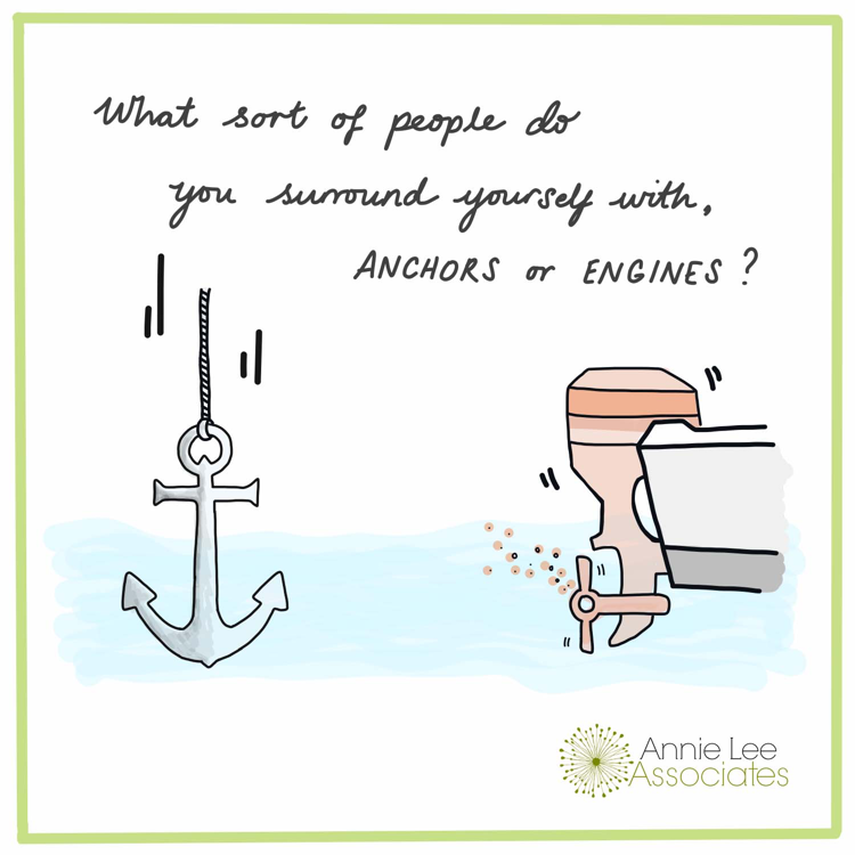



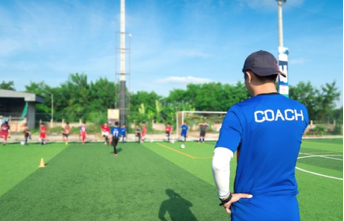

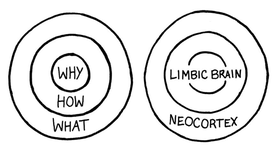
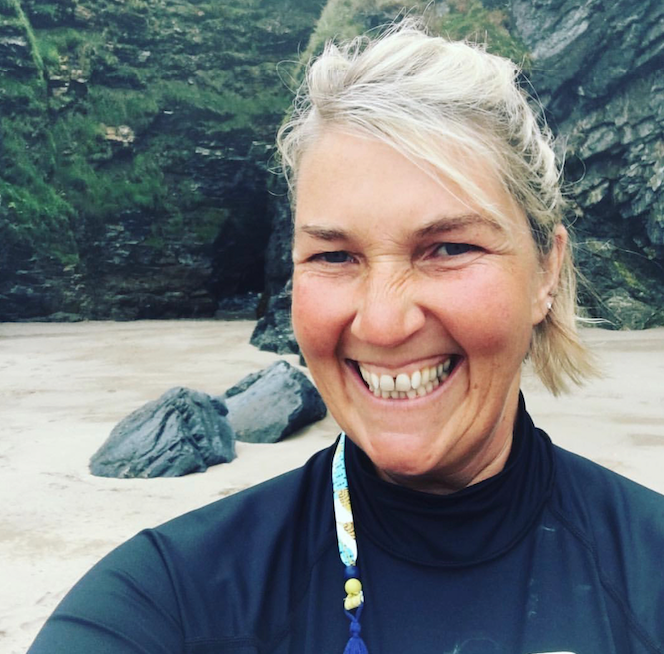
 RSS Feed
RSS Feed
